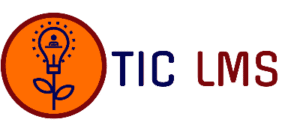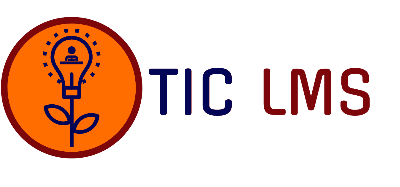2021 Government
- The Nigeria’s head of government in 1963 was _____
- A. Chief Nnamdi Azikiwe
- B. General Yakubu Gowon
- C. Alhaji Abubakar Tafawa
- D. Major Gen. Aguiyi Ironsi
- Who re-organised the Nigeria’s four regions into twelve states in May 1967?
- A. General Yakubu Gowon
- B. Lieutenant-Colonel Ojukwu
- C. Philip Effiong
- D. Abubakar Tafawa Balewa
- Government by the wealthy is known as _________
- A. Democracy
- B. Plutocracy
- C. Oligarchy
- D. Aristocracy
- Professor lbrahim Gambari was the Special Assistant to the United Nations Secretary General on____________
- A. Security matters
- B. African affairs
- C. Political and social matters
- D. The Economic Commission of Africa.
- Which of the following is a founding member of OPEC?
- A. Indonesia
- B. Algeria
- C. Venezuela
- D. Nigeria
- The main function of the Code of Conduct Bureau is to……
- A. Give the police more powers to make arrests.
- B. Ensure accountability in government business.
- C. Give the judiciary more powers to discipline erring judges.
- D. Protect public officers from the press
- The two military coups that toppled civilian regimes in Nigeria were those of ……
- A. February 1976 and December 1983
- B. July 1966 and August 1985
- C. January 1966 and July 1975
- D. January 1966 and December 1983
- Under the 1999 constitution of Nigeria, the power to create local governments is vested in the …..
- A. State Assembly
- B. National Assembly
- C. Office of the deputy governor
- D. Presidency
- The first Nigerian constitution to provide for the Fundamental objectives and directive principles of the state policy was the _________
- A. 1999 Constitution
- B. 1979 Constitution
- C. 1960 Constitution
- D. 1989 Constitution
- The fees collected by local governments at motor parks represent ______
- A. Income tax
- B. User charge
- C. Fines
- D. Levies
- The lbadan Conference of 1950 was convened to discuss the provisions of the ….
- A. Richards Constitution
- B. Macpherson Constitution
- C. Clifford Constitution
- D. Lyttleton Constitution
- The absence of the rule of law in government will bring about …
- A. Human rights abuse
- B. Political apathy
- C. Corrupt practices
- D. Treasonable offences
- The Economic Community of West African States has made progress in the area of ….
- A. Increased trade among members
- B. Providing financial aid to members
- C. Political integration of the region
- D. Free movement of persons and right of residence
- Nigeria’s withdrawal from the Edinburg Commonwealth Games in July 1986 was in protest against British…..
- A. Failure to impose sanctions on South Africa
- B. Negative utterances on Nigeria
- C. Supply of arms to Rhodesia
- D. Support for UNITArebels in Angola.
- During the Civil War, the major power that expressed moral support for Biafra’s self- determination was ……
- A. Great Britain
- B. China
- C. France
- D. The United States
- ____was the first Nigerian Permanent Representative to the United Nations.
- A. Chief Samuel Adebo
- B. Professor Ibrahim Gambari
- C. Alhaji Yusuf Maitama Sule
- D. General Joseph Garba
- The Barclay’s Bank and the British Petroleum Company in Nigeria were nationalized in the late 1970s for transacting business with …
- A. Libya
- B. South Africa
- C. France
- D. Portugal
- The Murtala/Obasanjo regime in Nigeria increased the number of states from….
- A. 30 to 36
- B. 19 to 20
- C. 12 to 19
- D. 4 to 12
- The ……. is responsible for advising the president of Nigeria on the sovereignty and territorial Integrity of the country.
- A. National Defence Council
- B. Council of State
- C. National Security Council
- D. Federal Executive Council
- The independent National Electoral Commission has the power to prepare and maintain the register of.____
- A. Electoral candidates
- B. Constituencies
- C. Political parties
- D. Voters
- Before Nigeria became a republic, the highest body charged with the administration of justice was the……
- A. Court of Appeal
- B. High Court
- C. Privy Council
- D. Supreme Court
- A major issue that distinguishes pressure groups from political parties is the …
- A. Ideology
- B. Objective
- C. Membership drive
- D. Voting pattern
- When Nigeria achieved independence in 1960, the head of state was the _____
- A. Queen of England
- B. President
- C. Prime Minister
- D. Governor-General
- After 1945, the demand of African nationalists changed from reform to independence because …..
- A. The Second World War enhanced colonial rule
- B. Colonial rule became less oppressive
- C. Colonial rule was in disarray
- D. The Second World War boosted their morale
- ____________was the method used by the British to facilitate the administration of Southern Nigeria.
- A. Trade association
- B. Divide and rule
- C. Dialogue
- D. Persuasion
- Some pre-colonial Nigerian societies are described as stateless because ……
- A. They had no formal governmental institutions
- B. They were not independent
- C. They had no definite political boundaries
- D. Their population was too small
- One argument against a multi-party system is the _______
- A. Inability to attract foreign assistance
- B. High cost of conducting elections
- C. Banning of interest groups
- D. Encouragement of opposition and instability
- ________refers to the manipulation of boundaries of constituencies in order to win more seats,
- A. Delimitation
- B. Devolution
- C. Determination
- D. Gerrymandering
- The fundamental rights of citizens include the following EXCEPT…….
- A. Association, property and social security
- B. Life, liberty and property
- C. Free education, employment and freedom of thought
- D. Life, speech and association.
- In the legislative process, a bill is a ….
- A. Proposal before the legislature
- B. Law passed by the legislature
- C. Motion accepted for debate
- D. Motion rejected after debate
- Under the 1999 Constitution, the appointment of Ministers and Ambassadors must be ratified by the ……..
- A. Senate
- B. House of Representatives
- C. National Council of States
- D. Presidency
- In the First Republic, the official opposition party was the ……….
- A. National Council of Nigeria and Cameroons
- B. Northern Elements Progressive Union
- C. Action Group
- D. Northern People’s Congress
- The highest grade in the Civil Service is known as the …………
- A. Technical cadre
- B. Executive cadre
- C. Clerical cadre
- D. Administrative cadre
The Native Authority System was most effective and successful in …….
- A. Mid-western Nigeria
- B. Western Nigeria
- C. Northern Nigeria
- D. Eastern Nigeria
- The major problem of the ECOWAS is lack of _______
- A. Uniform ideology
- B. Commitment by members
- C. Common customs union
- D. Common currency
- The citizenship of a country could be acquired through_______
- A. President proclamation
- B. Registration and arbitration
- C. Birth and naturalization
- D. Parliamentary legislature
- A common feature of government is________
- A. The making of public policy
- B. The separation of powers
- C. The independence of the judiciary
- D. A written constitution.
- One of the duties of the legislature is to_______
- A. Exercise oversight
- B. Implement law
- C. Promulgate decrees
- D. Adjudicate disputes
- The type of government operated in Nigeria between October 1st 1979 to December 3 1983 is called a __________
- A. Collegial system of government
- B. Presidential system of government
- C. Unitary system of government
- D. Parliamentary system of government
- Financial allocation to local governments by the federal or the state government to supplement the cost of a project is called_____
- A. Revenue allocation
- B. Reimbursement
- C. Statutory allocation
- D. Matching grant

